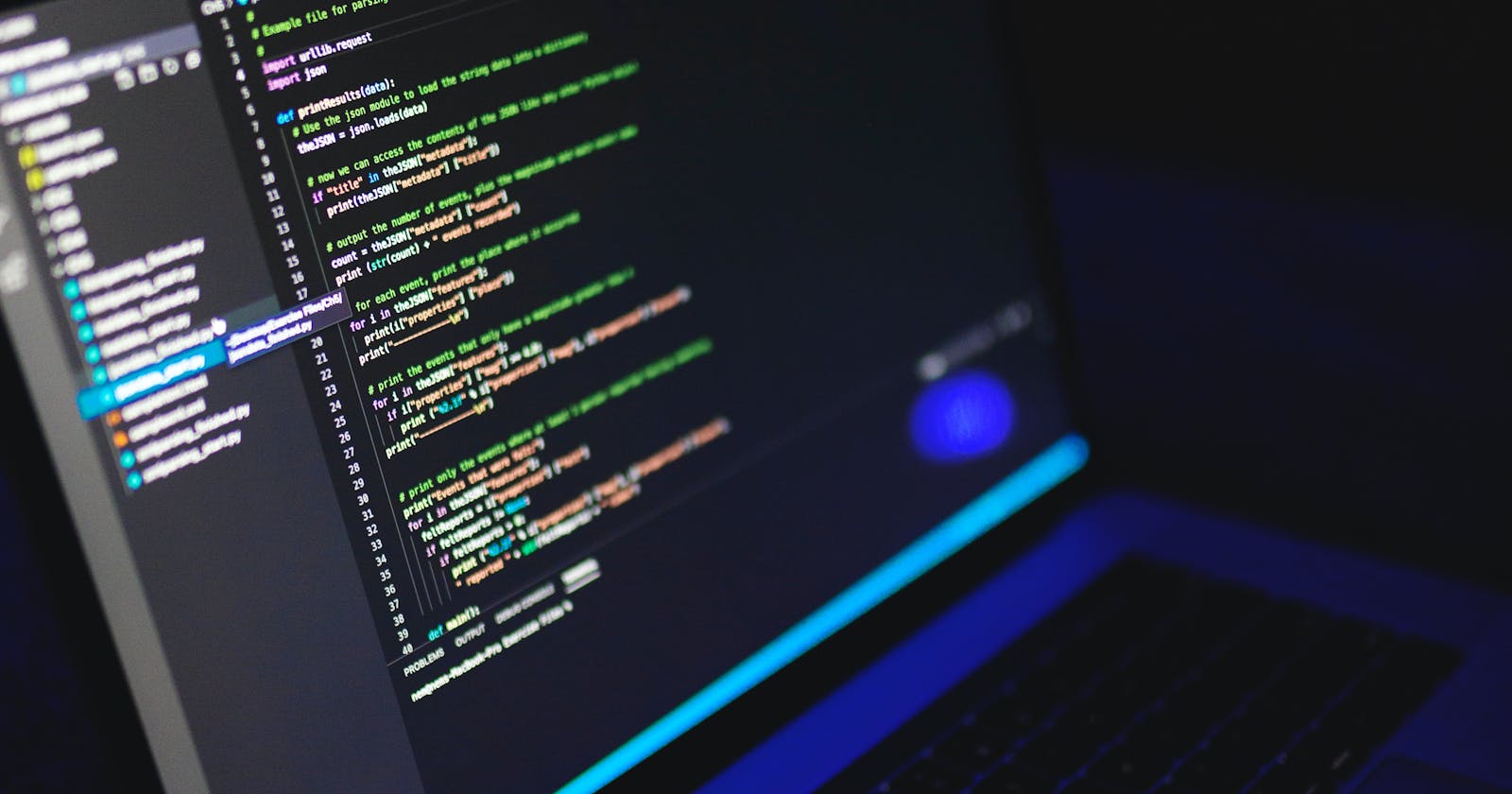Best practices for Learning Coding Successfully
Learning to code can be hard but it can also be worth it if you learn the right way. In this article, I will be sharing how to do that.
Table Of Content
- Coding and Its Importance
- How to get started in coding
- Benefits of Learning To Code Successfully
- The wrong way to approach learning
- The right way to approach coding problems
- How to get help when you're stuck
- Conclusion
The Importance of Coding
Coding in simple terms is a process of creating instructions for computers using programming languages. Coding is used to program the websites, apps and other technologies we interact with every day. Coding is important because it is the bedrock upon which modern applications and software are built. Without coding or programming, a lot of applications we use today would not have been possible. But before we start to look into what the best practices for coding. Let's look at how to get started.
How To Get Started In Coding
Trust me, there is a multitude of ways to get started in coding. If you are currently into tech already you might have enrolled in a coding BootCamp or practised with a coding app or joined a free course and if not, here are some ways you could learn coding
- Coding websites e.g W3Schools, educative.io, Treehouse, Udemy,Coursera
- Coding Apps e.g Enki, Codehub, Grasshopper
- Coding Bootcamps e.g Careerfoundry, Thinkful, Brainstation
- Degree Programs e.g pursuing a degree in a related field; Computer Science or Software Engineering
- MOOCs ( Massive open online course) e.g MIT or Havard, edX
- Self-Guided e.g freecodecamp, Codecademy, Stackoverflow. Mentioned above are just a few compared to a whole lot of mediums out there where you can learn to code. It's best you do your own research as well. If you have not considered what path to choose, that's totally okay. However, there are a lot of career paths you might want to look into. Some of these include
- Data Science
- Game Development
- Web Development
- Mobile Development
- Cybersecurity
- Machine Learning
- Artificial Intelligence
The Benefits Of Learning To Code Succesfully
Now to the interesting part that everyone likes to hear, the benefits, and perks of learning to code, not just that but learning successfully. "For every action, there is an equal and opposite reaction" I guess you know that this law of physics also applies to other fields as well as coding or technology. I know it's kind of funny but I think it's true, it's not to say that other fields don't have their benefits too. Anyways what are these benefits?
Benefits of Learning
The benefits of learning come as you get better and you upskill in your quest to pursue a career in your selected coding path. Most likely, you will have access to a wide range of well-paying jobs in you whichever industry you prefer, whether it's a coding or non-coding-related field. Most companies nowadays value coding skills and are willing to pay extensively for people who will give their skills. But the truth is we undermine other benefits of learning to code as well as the monetary aspects. I can vividly remember one time I tweeted a question I asked " Asides from money, what's your motivation in tech?" A lot of people choose money as their only motivation, I could not agree less but then I thought to myself, Money is important enough to be a motivation in anything but it can't be the only source of motivation, can it? There are also other benefits aside from the monetary aspects which include;
Learning to code nurtures your math and problem-solving activities: I still suck at math but I have experienced some improvement in my problem-solving activities. Basically, if you are programming or coding, you are solving a problem.
Learning to code in itself is a challenging endeavour that will test grit and determination: I'm sure a lot of us can relate to this. Coding itself is not easy, this will require something other than just learning to code but also applying grit. Grit means unwavering courage in the face of difficulty. When it comes to coding or programming it's definite that you will face a lot of difficulties especially while starting out but it gets easier when you approach learning with the right mindset.
The Wrong Way To Approach Learning
Let's take a case study to further explain this point, Let's look at Mr X and Mr Y . Mr X is learning to code but he doesn't have a clear goal at the beginning of his journey and then begins to experience difficulty implementing what he learns he gets frustrated achieving little or nothing. On the other hand, Mr Y set a clear goal of what he wants to achieve, he is not frustrated by the fact that he cannot learn everything. He reinforces everything he learns by taking on small challenges and eventually builds big projects on his own. I guess by now you know who took the wrong and right approach to learn. Here are a few things you should not do while learning.
Don't try to copy-paste the codes while learning, try as possible to type them out as you learn this will help your brain to reinforce this knowledge by default.
Don't get overwhelmed by the technologies you have not learnt. Embrace the fact that you will never learn everything. Although you never stop learning.
Don't learn in isolation. Try as much as possible to share your knowledge with others whether it's sharing your problems with people in like-minded groups or communities. Whether you write or blog about it, so long as you are learning in public. It helps to boost motivation and accountability. Some of the communities you could join include; #100DaysOfCode
Don't assume you understand how the code works just after watching a few tutorials. Make sure you practice and build as much as you can to reinforce that knowledge. If you feel you don't understand it yet, go back and ask questions. Seek help from people who have experienced similar challenges.
The Right Way To Approach Coding Problems
"Nobody was born an expert, experts learn all the time" ~ Jonas Schemdtman
Over time problems in today's world have birthed some new technologies. When there is a problem, the next question is how can the problem be solved. In this section let's highlight a few things you should consider when it comes to the problem-solving approach.
- Make sure you 100% understand the problem. Ask the right questions to understand the clear picture of the problem
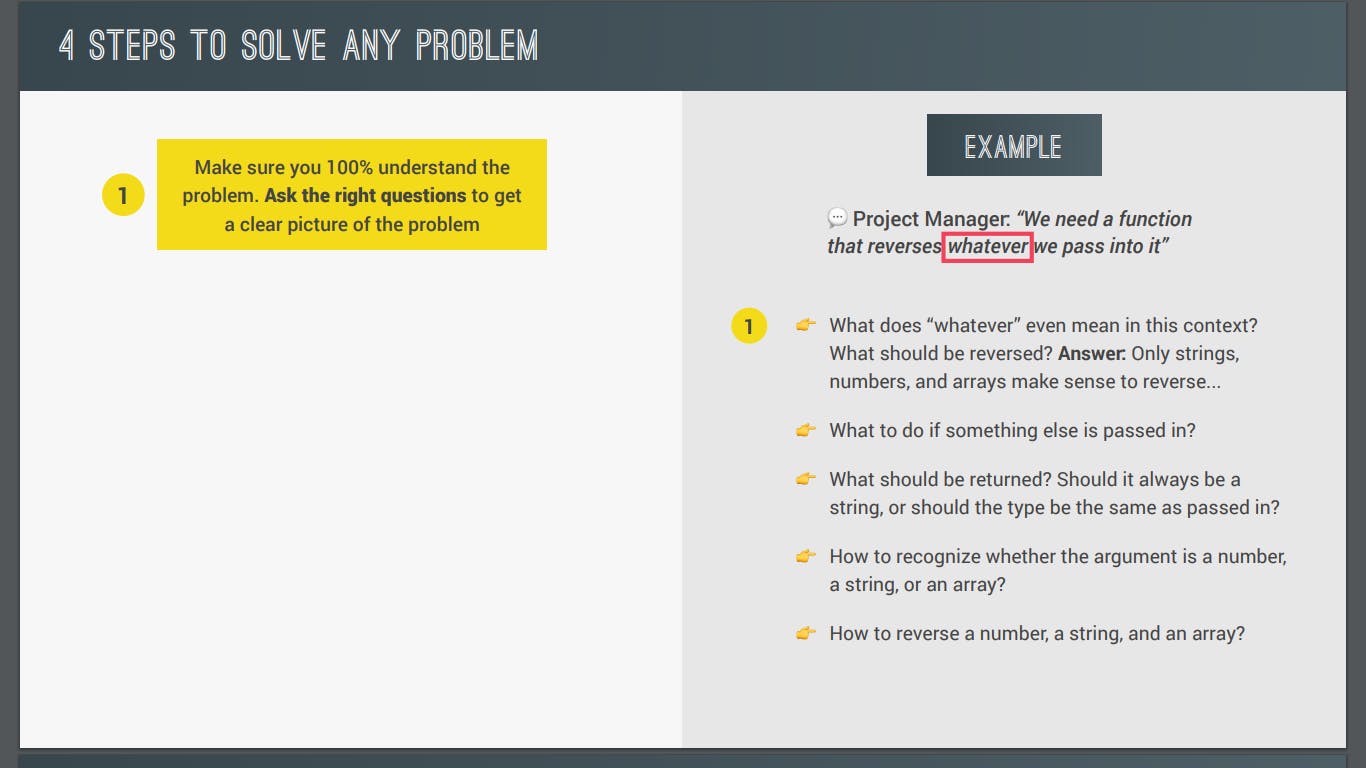
- Divide and conquer. Break huge tasks into simpler sections before you solve them.
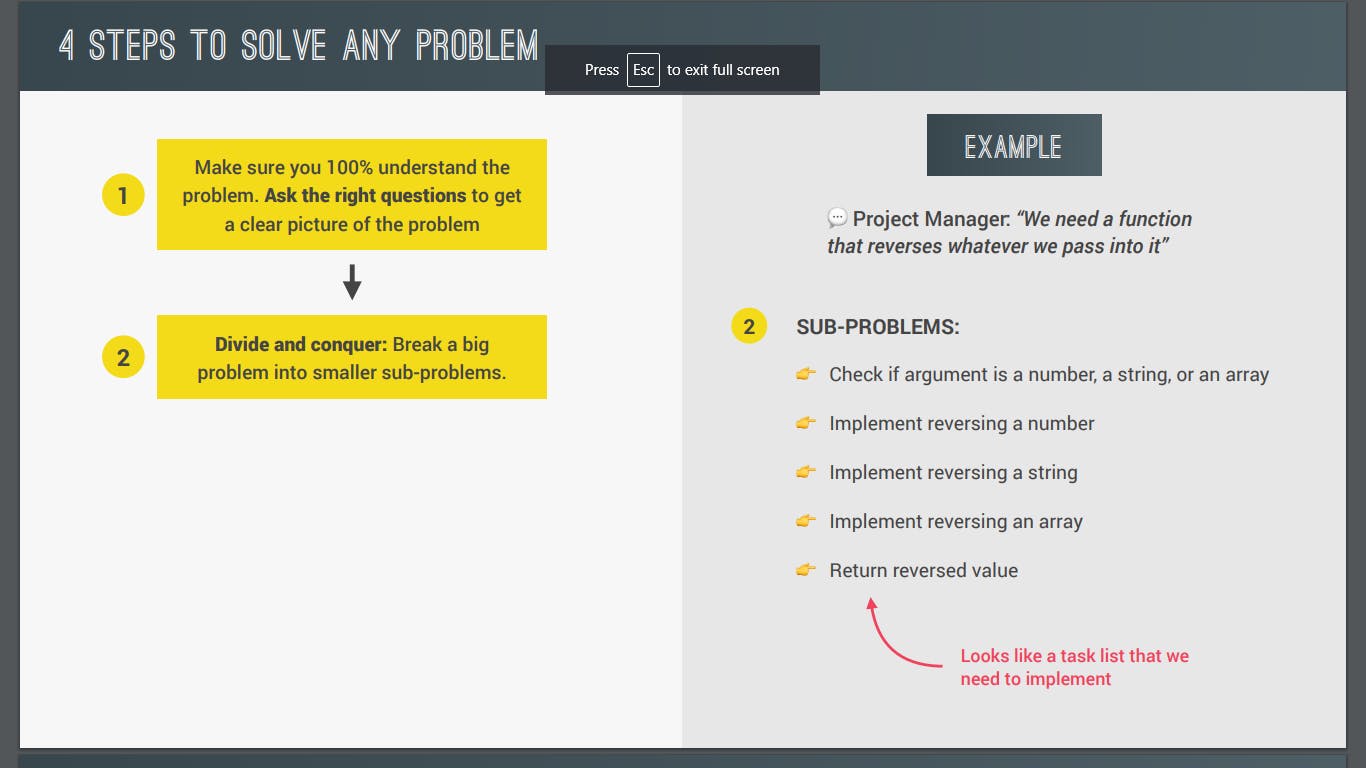
- Don't be afraid to research as much as you have to. And don't forget that Google is your friend in this career path that involves coding, programming or in tech generally👍. When you face a challenge, know that someone somewhere in this universe has faced it too. The world wide web is always there so you can DYR ( do your research)😉.
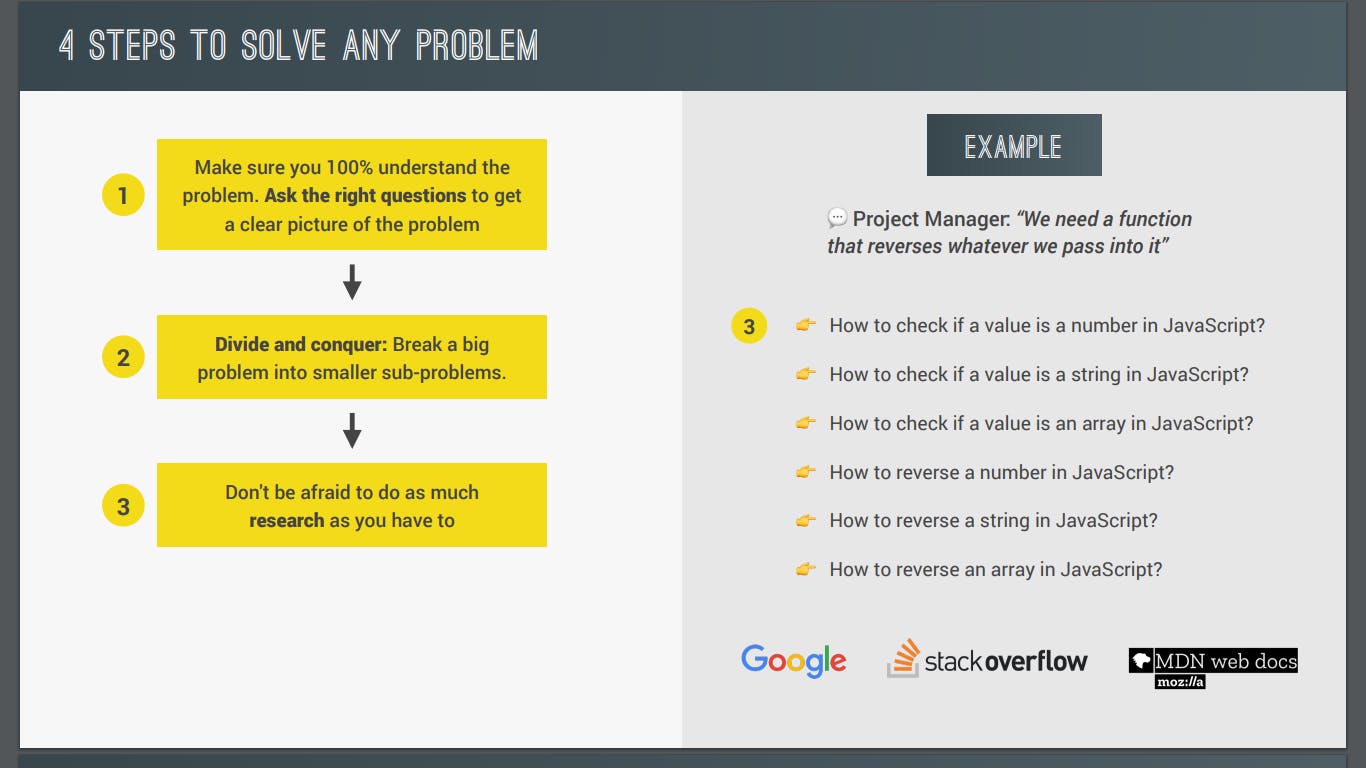
- For bigger problems, write pseudo-code before writing actual code. Pseudocode is an informal high-level representation of the actual code that shows how an algorithm or a computer program works in plain English. Since it has no specific syntax, it is easy to read and write, and programmers can comfortably communicate ideas and concepts, even if they are working on different programming languages.
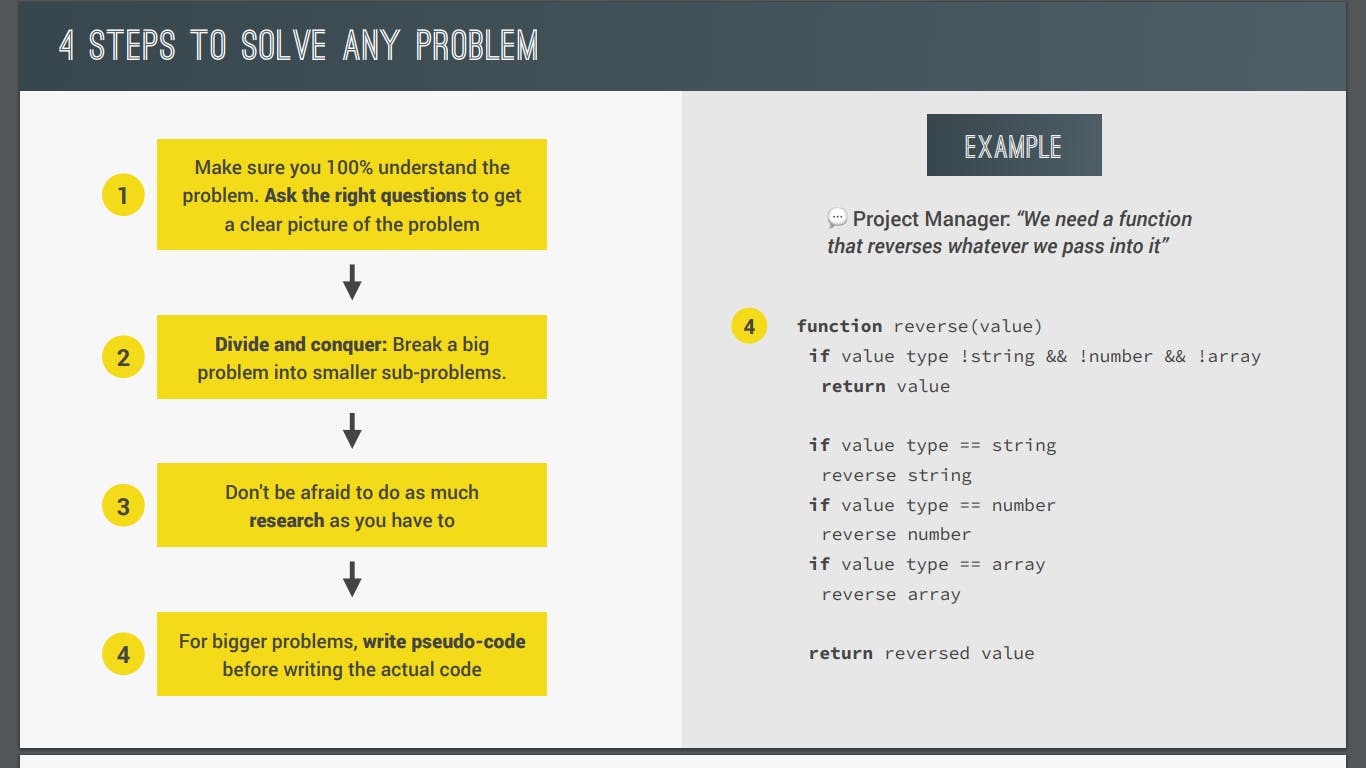
If you are someone like me who cringes at the thought of asking for help or reaching out to others, then this next section is for you
How To Get Help When You Are Stuck
When you are learning something, basically anything, in particular, there is a tendency that it might get difficult and when that happens you might get stuck in the process. However, when it comes to something like coding there are ways to go about it.
Expectation vs Reality: This suggests that what you thought or assumed you would face does not match the present state of things. For instance, you might get a course on say Java programming, and you start out, set a goal to finish the course, and even attempt some little challenges here and there. But the reality might be you attempted some little challenges and you succeeded but then you assumed all those challenges were equally going to be easy to pass then you got stuck in the process.
Ask for help: I know this sounds cliche, but nobody can read your mind. You might feel shy or get your ego bruised or even sound dumb in the process but that's just life. If you feel stuck, you could reach out to friends, tutors or even a mentor. They will be happy to help.
Google/ Stackoverflow: These platforms have been used over time to seek help, share solutions and do research. There are tons of resources out there on Google alone to show you and teach you how to solve the challenge you might be facing and on Stackoverflow, a lot of experienced developers would be helpful in sharing solutions to solve your problems. I used the platforms because they are relatable to the coding field, I'm sure there are also other mediums to get help when you are stuck with a challenge. So get un-stuck today😊
Conclusion
 Learning to code might be difficult for some, and easy for others. Note that everyone will not have the same experiences but one thing is certain. We will surely face problems and need help in one way or the other. It's best to know your personality and what practice works for you. Thanks for stopping by🎉
Learning to code might be difficult for some, and easy for others. Note that everyone will not have the same experiences but one thing is certain. We will surely face problems and need help in one way or the other. It's best to know your personality and what practice works for you. Thanks for stopping by🎉
Sources
Say Hi 😎👋
.
